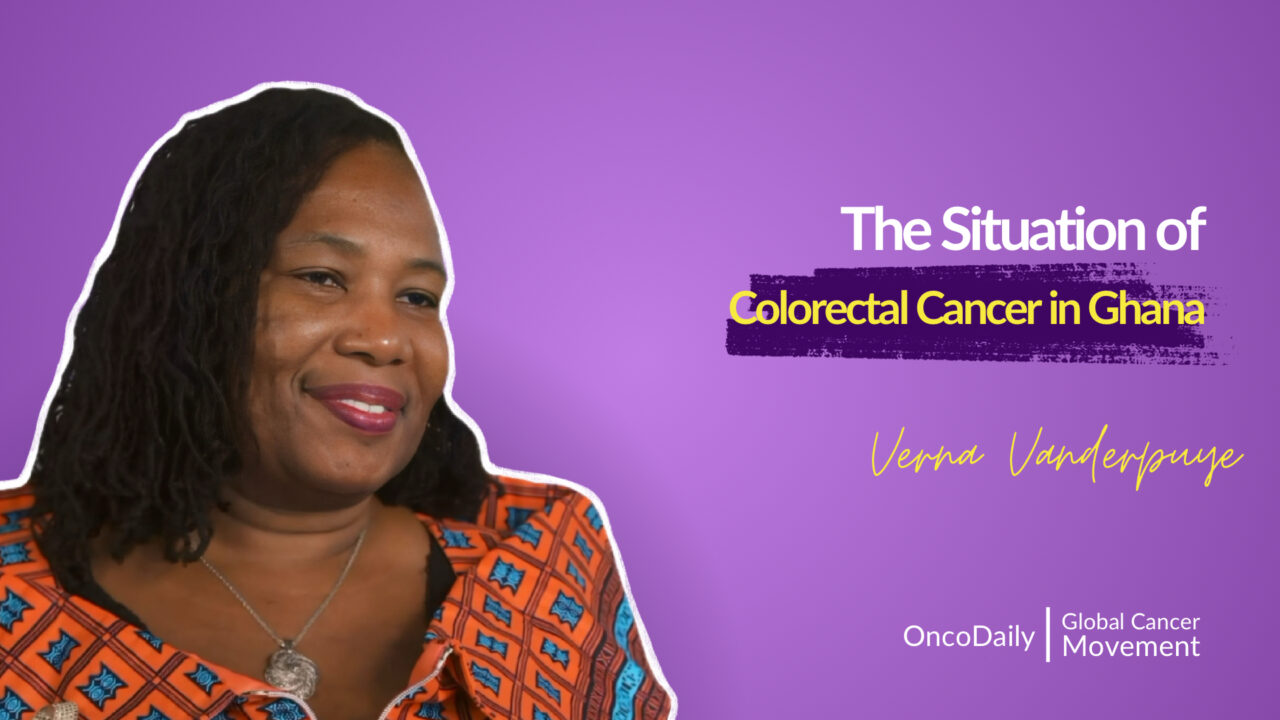In the inaugural event of the Global Cancer Movement, initiated by OncoDaily, Dr. Verna Vanderpuye, a renowned clinical oncologist at Korlebu Teaching Hospital, shared her expertise on addressing colorectal cancer in Ghana. The virtual event, held from December 6-8, 2024, explored the pressing challenges of cancer care in resource-limited settings and innovative approaches to overcoming these barriers.
Good afternoon, everyone. I’m Verna, a clinical oncologist from the Korlebu Teaching Hospital in Ghana. I’ll be talking about colorectal cancer in Ghana.
Now, about Ghana — it’s a West African country with 30 million people. We’re a low-to-middle-income country with a GDP per capita of $2,000 as of 2003 and a debt-to-GDP ratio of 85%. Our health expenditure is less than 7% of GDP, and the National Health Insurance focuses mainly on breast and cervical cancers and childhood leukemia. Unfortunately, colorectal cancer isn’t prioritized.
From GlobalCAN data, which is based on limited registries, CRC is the 10th most common cancer overall in Ghana. For men, it’s the 5th, and for women, it’s the 7th. We have a near-equal male-to-female ratio. In the year 2000, there were about 3,000 cases reported. Risk factors like obesity, alcohol consumption, and red meat are significant, and over half the patients present with advanced disease. The rectum is the most commonly affected site, and left-sided tumors are more prevalent. Diagnosis is often delayed because many patients present with hemorrhoids and are treated traditionally, which pushes the timeline.
From pathology, around 90% of cases are adenocarcinomas. A small study from five years ago showed 40% MSI high and 32% KRAS mutations. But genetic testing is rare and expensive, and we don’t have large studies for proper data.
In terms of screening, Ghana doesn’t have a structured program. Colonoscopy is costly, and there’s no insurance coverage for it. Primary healthcare workers lack awareness of CRC symptoms, and cultural barriers, like the taboo around stool testing, also affect screening. FOBT and immunohistochemistry tests are available but not widely used. There’s a lot of reliance on alternative medicine, which delays diagnosis further.
For surgery, we have general surgeons but no surgical oncologists. Surgeons do high-volume colorectal surgeries, but hepatic and lung resections for stage 4 cases aren’t done, largely because of cost. There’s a lack of molecular testing, and family history often isn’t shared due to cultural stigma around cancer.
When it comes to systemic therapy, we have the basic drugs — capecitabine, 5-FU, oxaliplatin, and CPT-11 — but targeted therapies like bevacizumab, trastuzumab, and cetuximab are expensive and not covered by insurance. Radiotherapy is available in only three centers in Ghana, all located in the southern parts of the country. We use technologies like IMRT and 3D conformal therapy but face geospatial challenges and frequent equipment downtimes.


